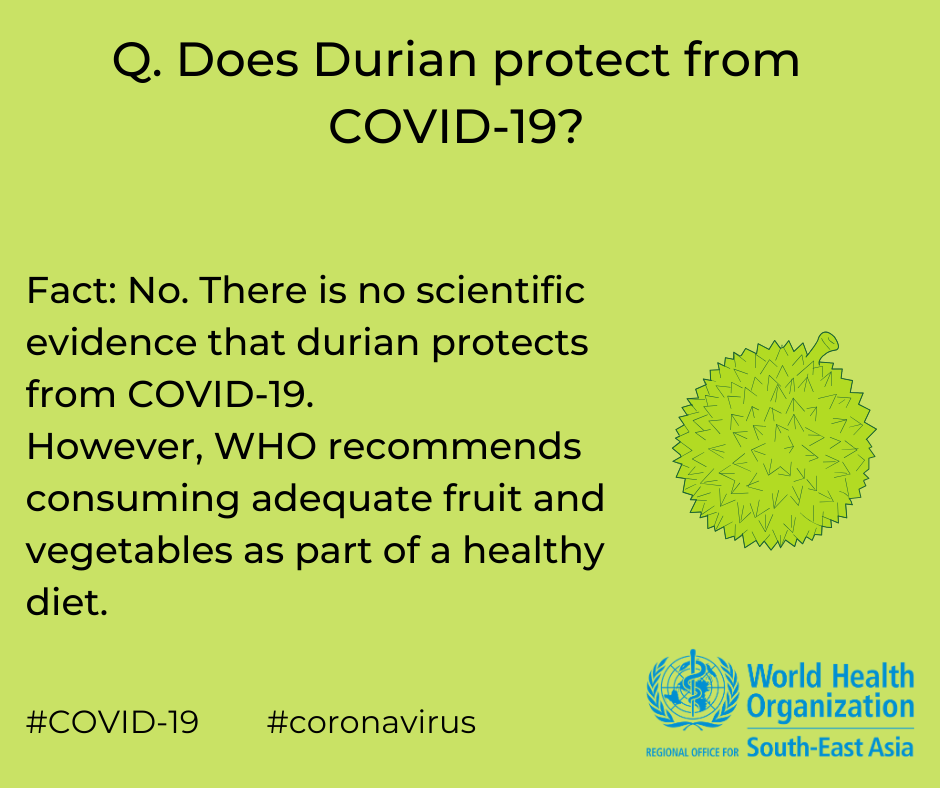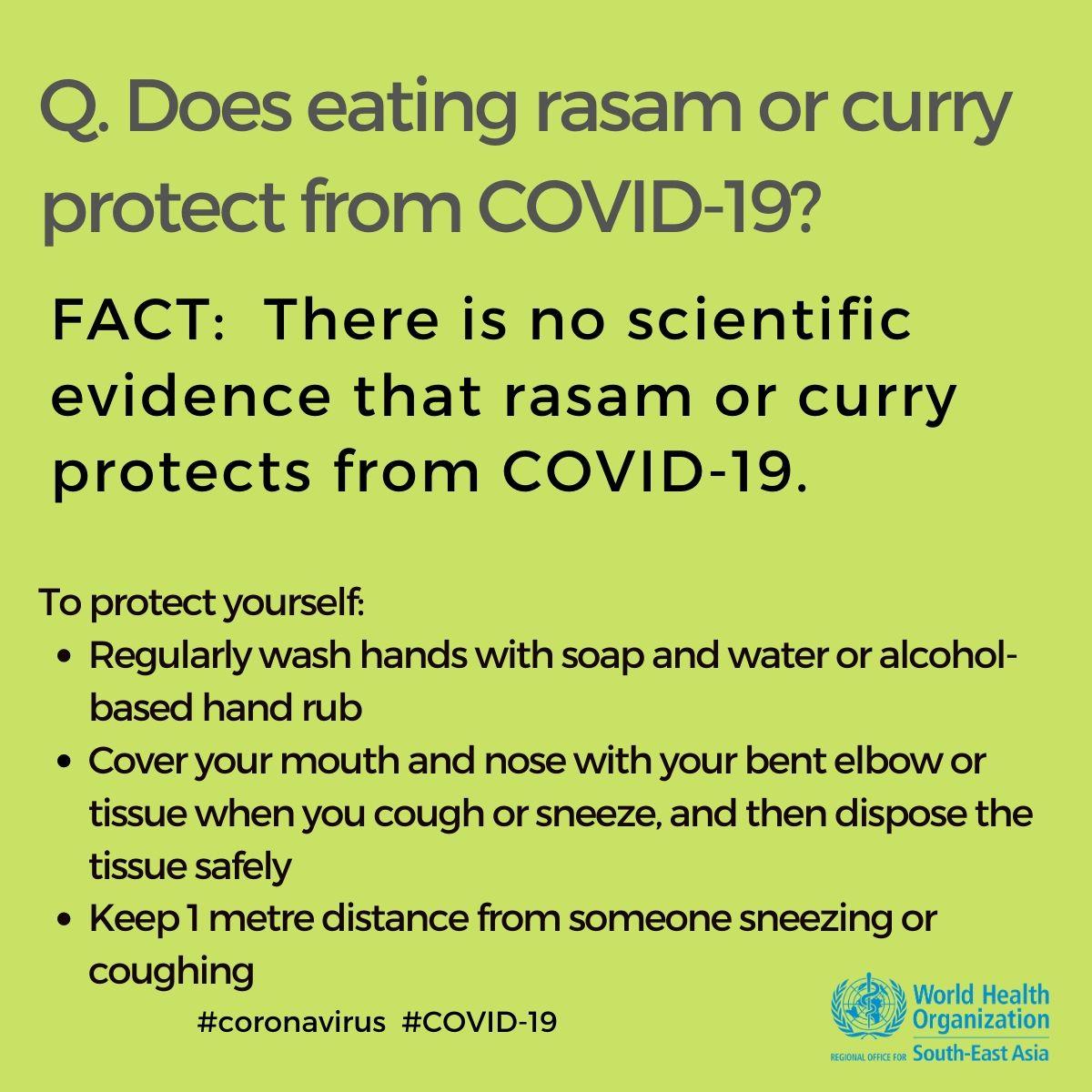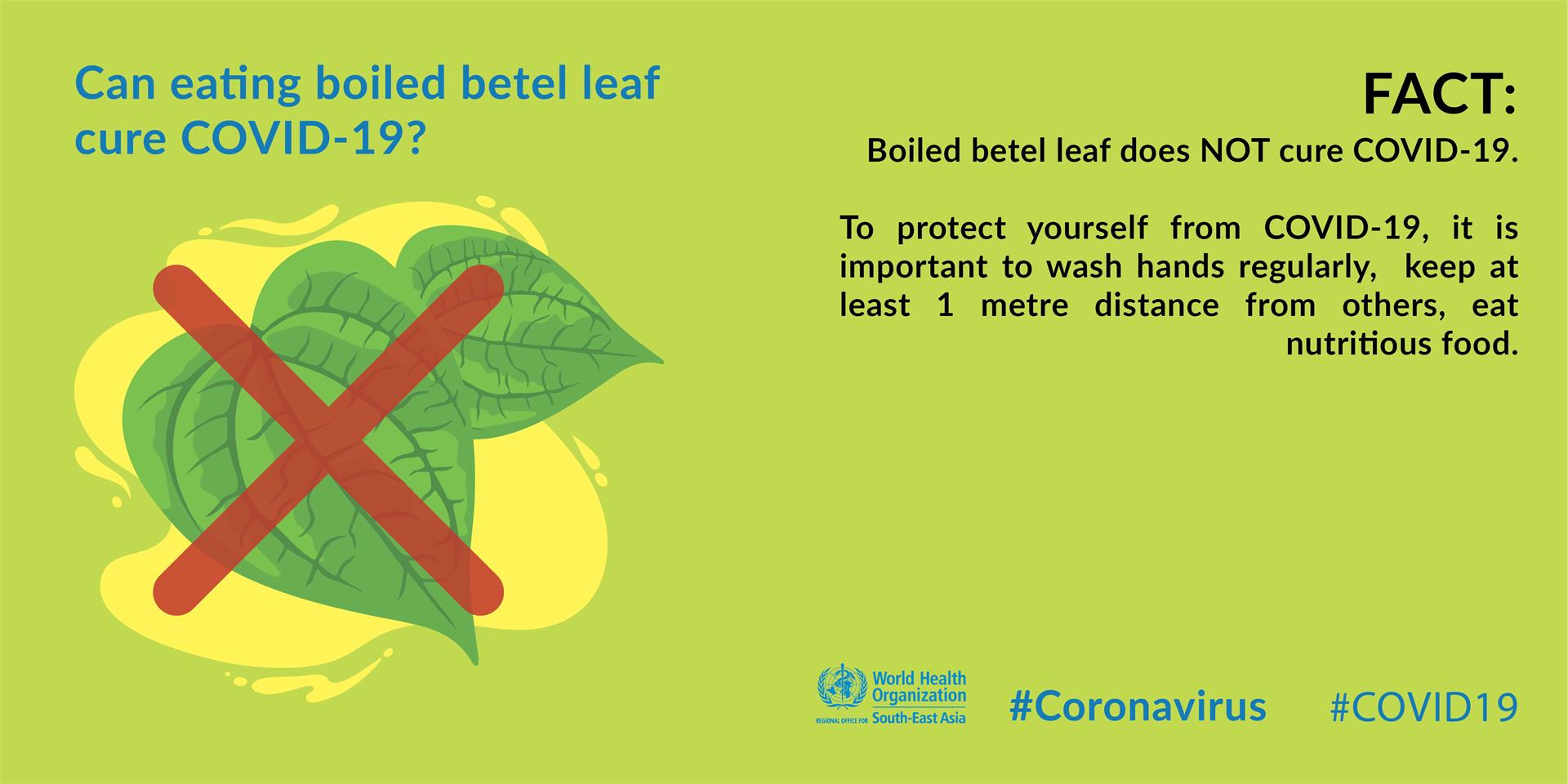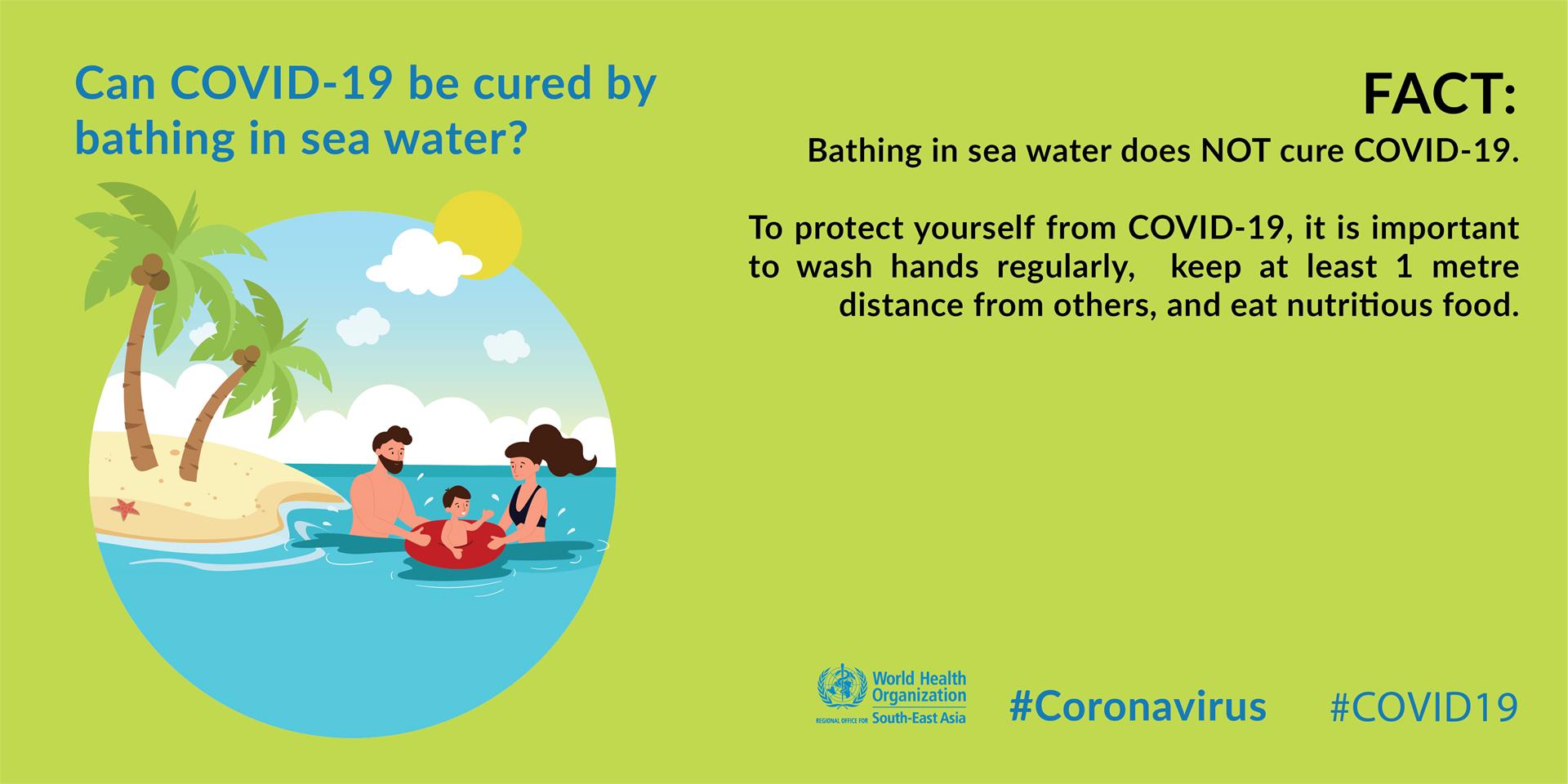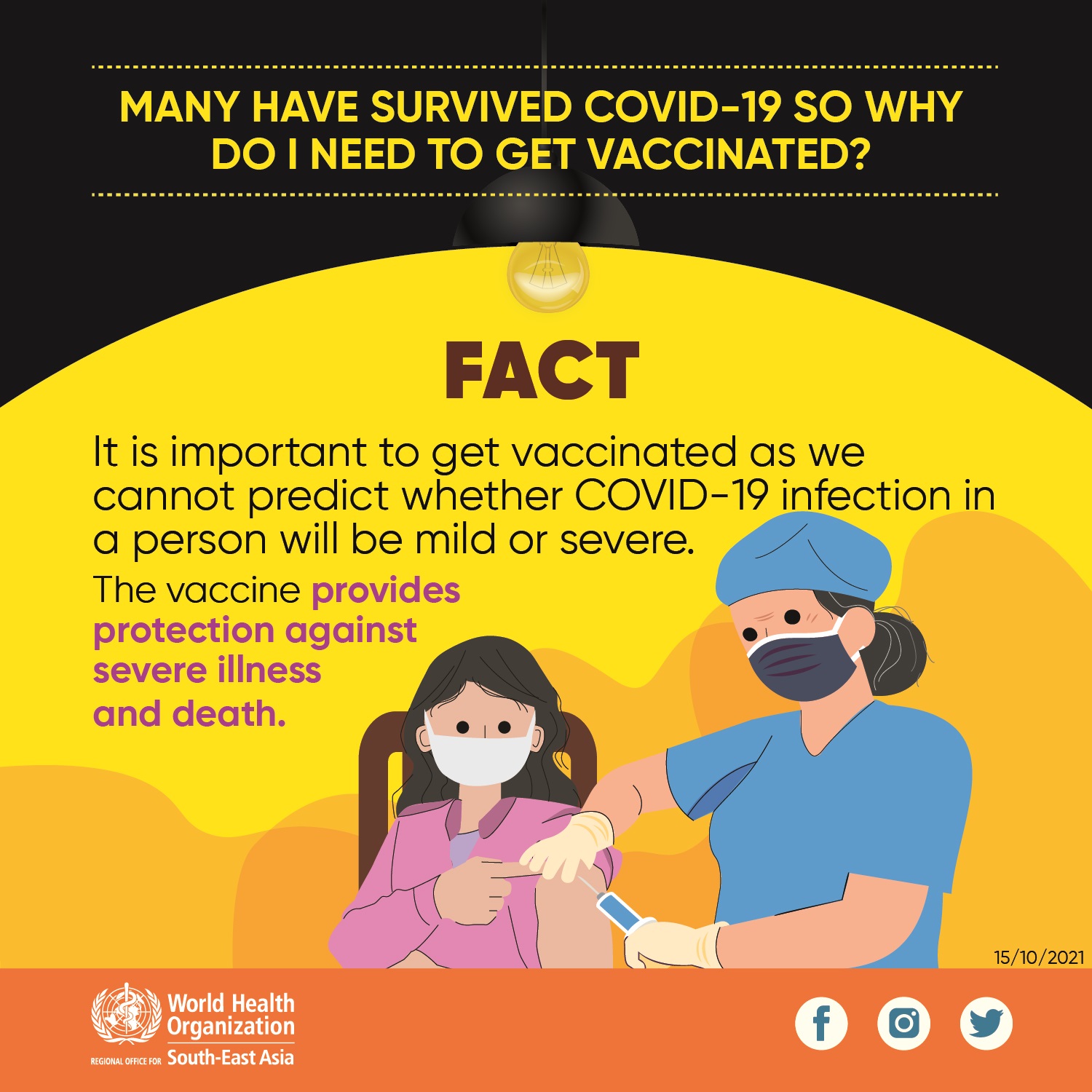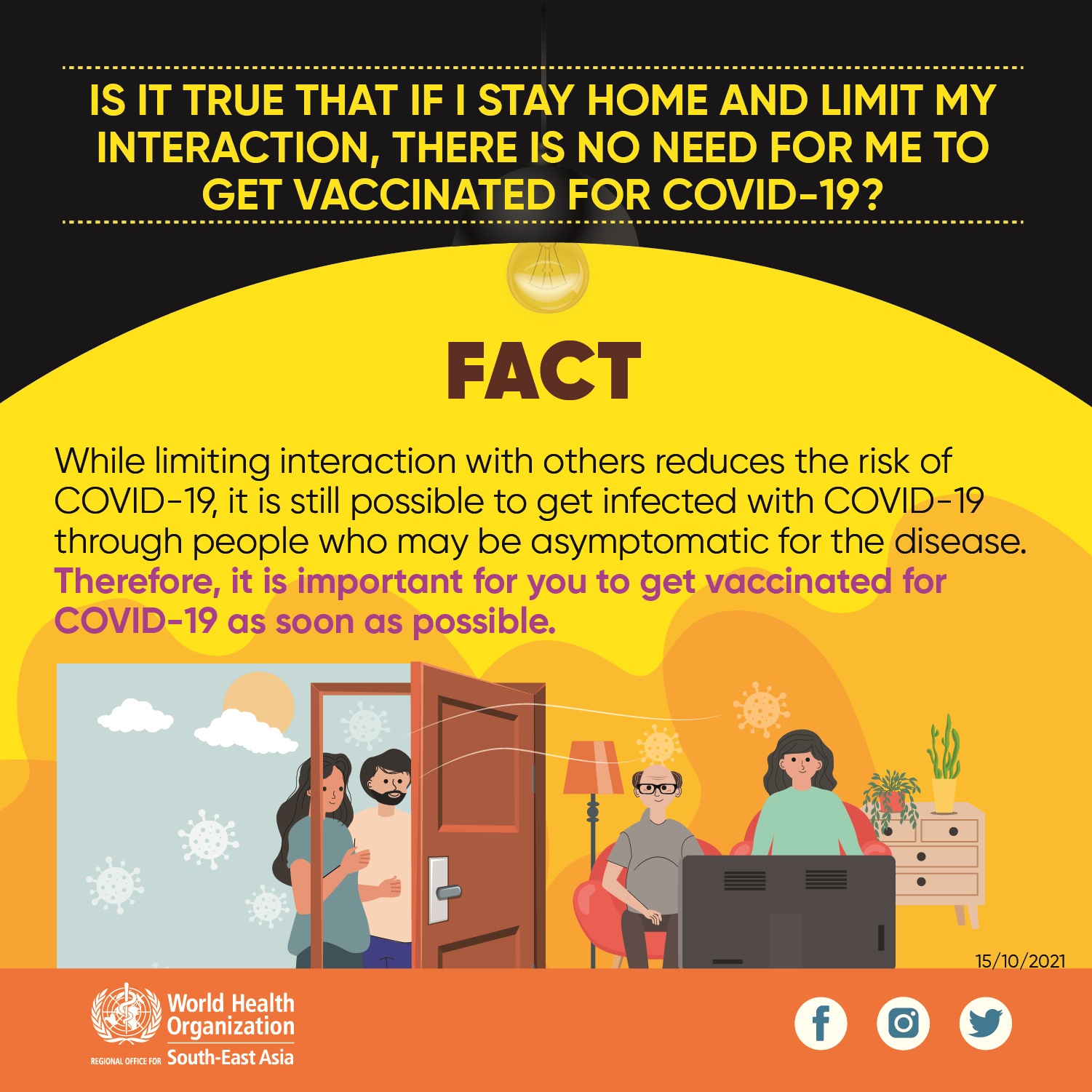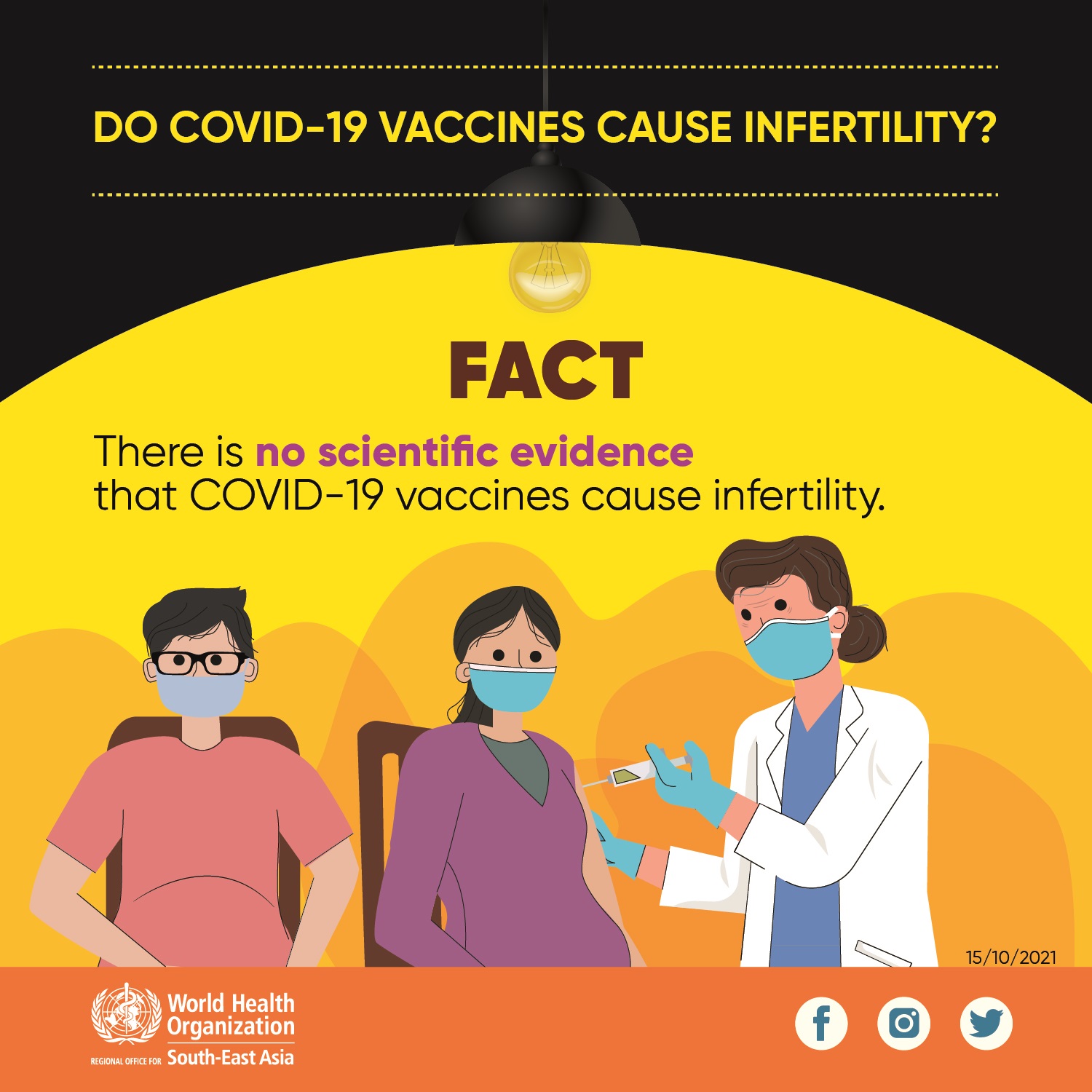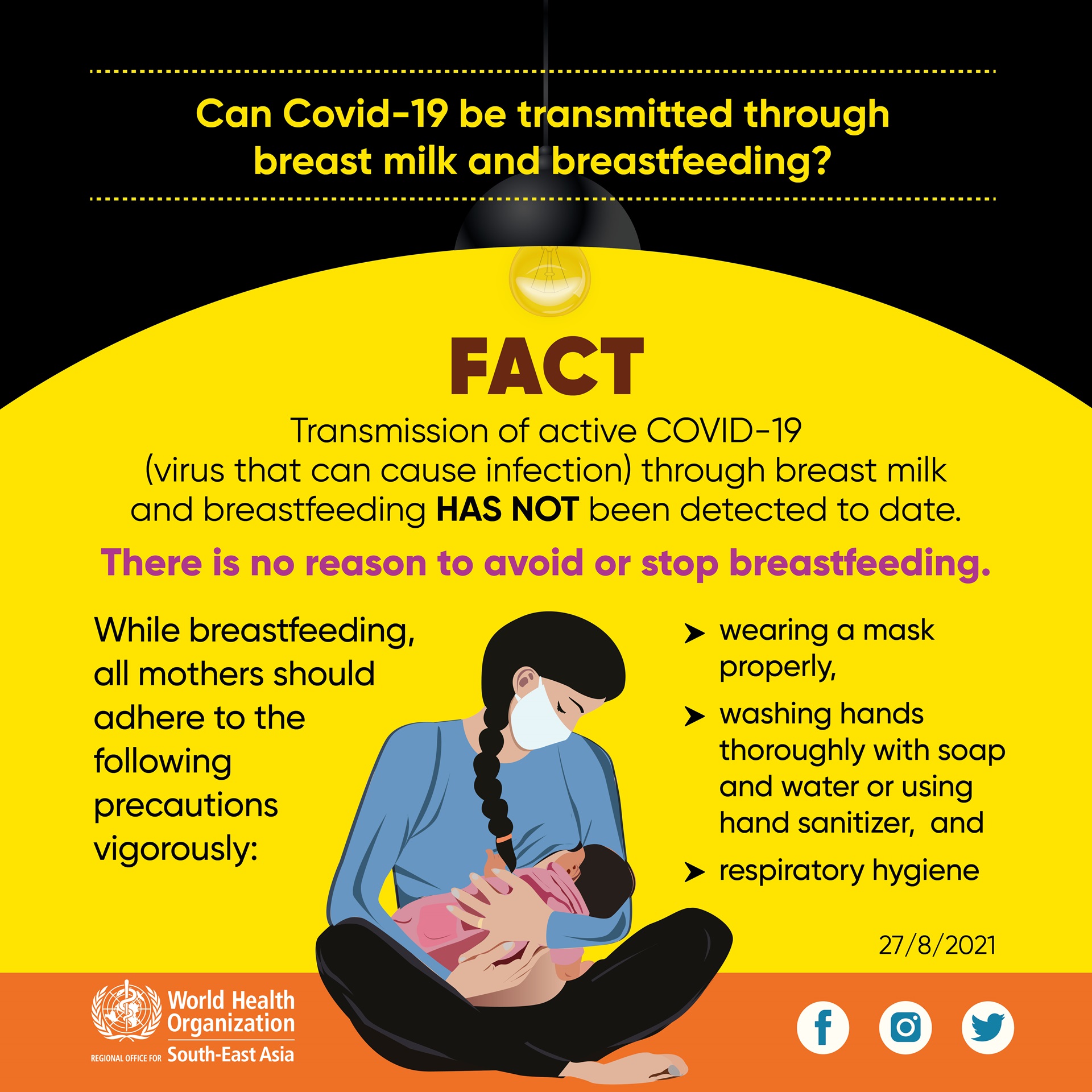To protect yourself:
- Regularly wash hands with soap and water or alcohol-based hand sanitizer
- cover your mouth and nose with your bent elbow or tissue when you cough or, and then dispose the tissue immediately.
- Keep 1 meter distance from someone sneezing or coughing
Are Covid-19 booster shots necessary?
Is the Covid-19 booster jab safe?
Is mixing vaccines safe?
FACT
YES. Studies have shown reduced vaccine protection against COVID-19 infection from around four to six months after completion of the last vaccine dose. Those highest risk groups may experience severe disease as levels of protection drops even further over time. WHO recommends that the booster doses should be offered 4-6 months after individuals have completed the primary series.
FACT
es. Studies have shown the booster jab is safe and it enhances protection against severe COVID-19 infection. Some might experience side effects like tiredness and headache, fever, chills and pain or swelling at injection site. Most side effects are mild or moderate and usually get better within a few days.
FACT
Yes. WHO supports the use of heterologous schedules, also called “mix and match”. This means using different vaccine products for different doses in the schedule. WHO has made a number of recommendations about how to achieve the same or favourable level of immunogenicity from mixing vaccine products instead of a single vaccine product for all doses.
Many have survived COVID-19 so why do I need to get vaccinated?
COVID-19 is a bacteria that can be cured with Aspirin?
The protective effect of vaccines wanes over time and
vaccines do not provide adequate protection especially against Omicron.
FACT
It is important to get vaccinated as we cannot predict whether COVID-19 infection in a person will be mild or severe. The vaccine provides protection against severe illness and death.
FACT
COVID-19 is a virus, NOT a bacteria. It cannot be cured with aspirin.
FACT
It is important to take the vaccine when you are offered it, even if there is some waning of immunity over time. As per available evidence, currently available COVID-19 vaccines remain effective at preventing severe disease, hospitalization and death against all variants of SARS-Cov-2 virus, including Omicron.
Do COVID-19 vaccines cause you to test positive for COVID-19?
FACT
No. The COVID-19 vaccine WILL NOT affect the COVID-19 diagnostic test (PCR or antigen). Vaccines will protect you from severe illness due to COVID-19.
Is it true that if I stay home and limit my interaction, there is no need for me to get vaccinated for COVID-19?
FACT
While limiting interaction with others reduces the risk of COVID-19, it is still possible to get infected with COVID-19 through people who may be asymptomatic for the disease. Therefore, it is important for you to get vaccinated for COVID-19 as soon as possible.
Do COVID-19 vaccines cause infertility?
FACT
There is no scientific evidence that COVID-19 vaccines cause infertility.
I’m fully vaccinated for COVID-19. Do I still need to wear a mask?
FACT
Yes. Vaccinated people can also develop the disease, although usually mild, and transmit the COVID-19 virus to others.
To protect those close to you, everyone, including those fully vaccinated, should continue to wear masks properly, especially as some new variants are more transmissible.
Is it true that people vaccinated for COVID-19 cannot get infected?
FACT
People vaccinated for COVID-19 may still get infected, but are likely to get only mild disease. COVID-19 vaccines that are approved for WHO Emergency Use Listing (EUL) help to prevent severe disease, hospitalization and death.
Can Ivermectin cure COVID-19?
FACT
The current evidence on the use of Ivermectin to treat COVID-19 patients is inconclusive. Until more data is available, WHO recommends that the drug only be used to treat COVID-19 within clinical trials. This applies to patients with any disease severity.
Can COVID-19 be transmitted through breast milk and breastfeeding?
FACT
Transmission of active COVID-19 (virus that can cause infection) through breast milk and breastfeeding HAS NOT been detected to date. There is no reason to avoid or stop breastfeeding.
Does being a vegetarian mean I’m less likely to contract COVID-19?
FACT
COVID-19 can affect everyone.
There is no evidence to suggest that being a vegetarian will protect against COVID-19. In general, fruits and vegetables are essential for good health.
To protect yourself from COVID-19, wear a mask properly, keep at least 1m distance, wash your hands regularly and get vaccinated.

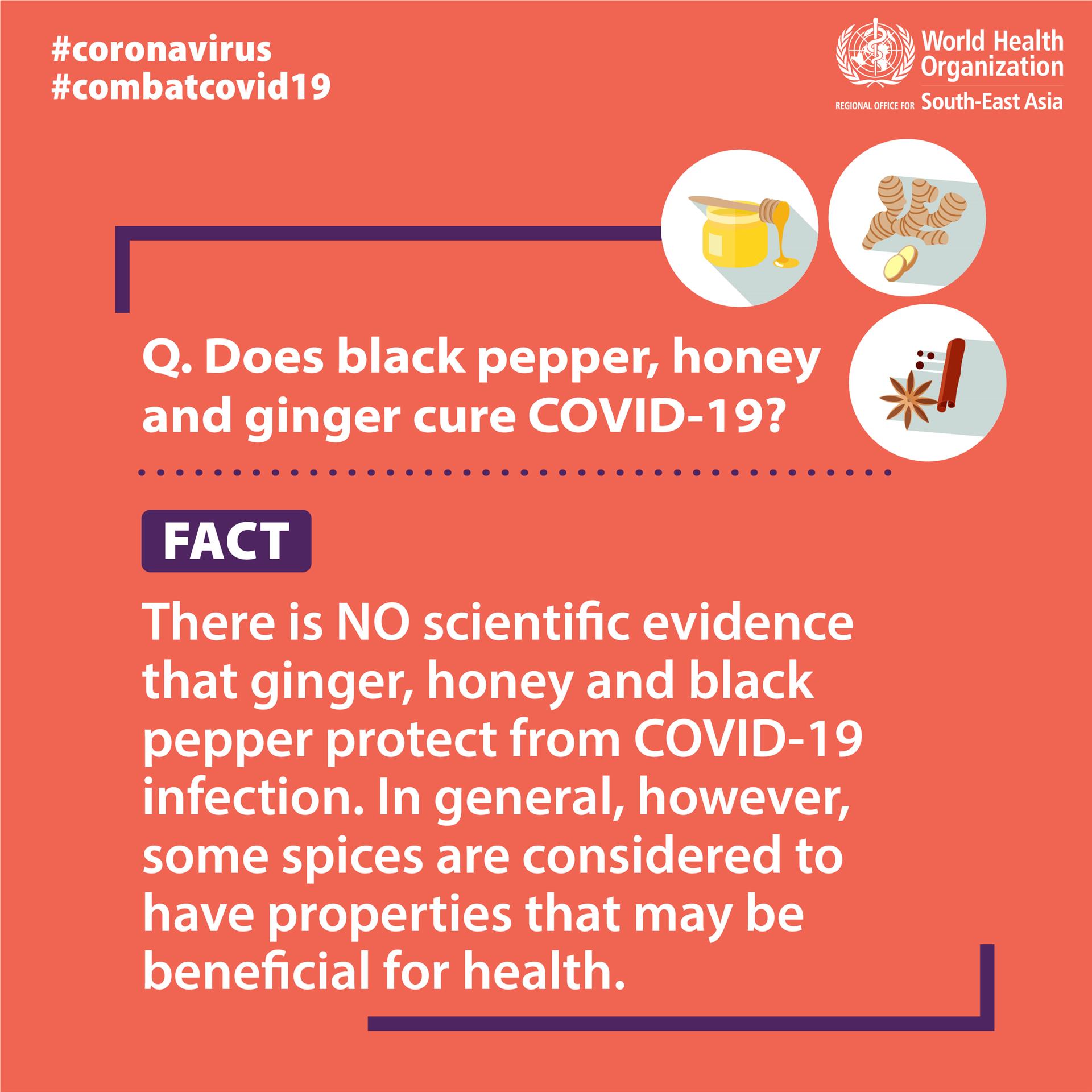


FACT
Yes. Though rare, reinfection is possible (for example with SARS-CoV-2 variants).
Protect your loved ones and yourself:
- Avoid crowded places
- Frequently wash hands and follow cough etiquette
- Wear a mask properly and
- Ensure adequate ventilation
Q. Does black pepper, honey and ginger cure COVID-19?
Fact: There is no scientific evidence that black pepper, honey and ginger protect from COVID-19 infection. In general, however, some spices are considered to have properties that may be beneficial for health.
Q. Does Vitamin D cure COVID-19?
Fact: Vitamin D does not cure COVID-19. We currently do not know whether it protects people from COVID-19 infection. However, adequate levels of vitamin D are extremely important for good health, as it strengthens bones and has other beneficial roles.
Does liquorice root or Mulethi cure COVID-19?
FACT : No it does not.
In some regions in the world, liquorice root or Mulethi is considered a wellness herb that may have some antimicrobial properties. However, there is no evidence from the current outbreak that eating liquorice root or any other household remedies has cured people from coronavirus. Do also note that over consumption can have hazardous effects.
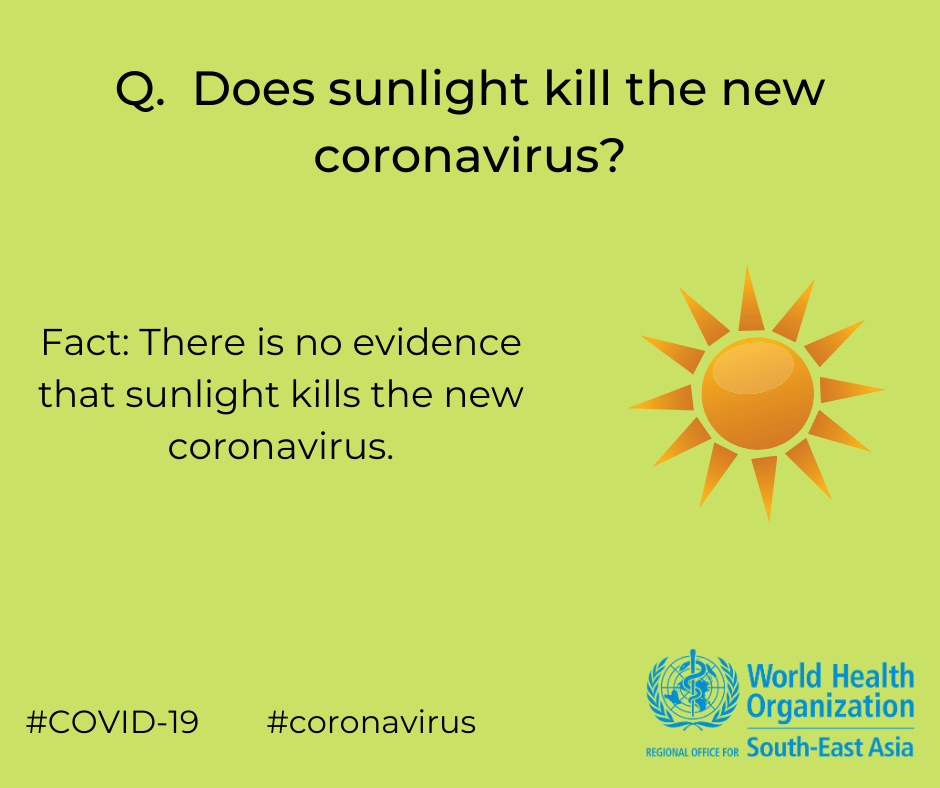
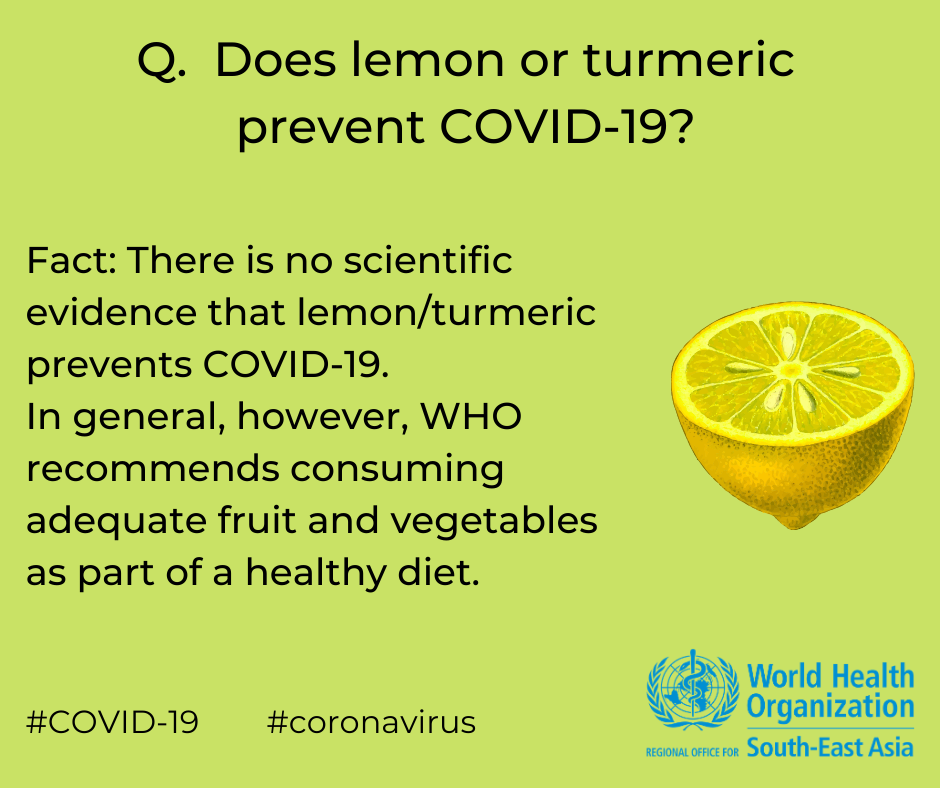
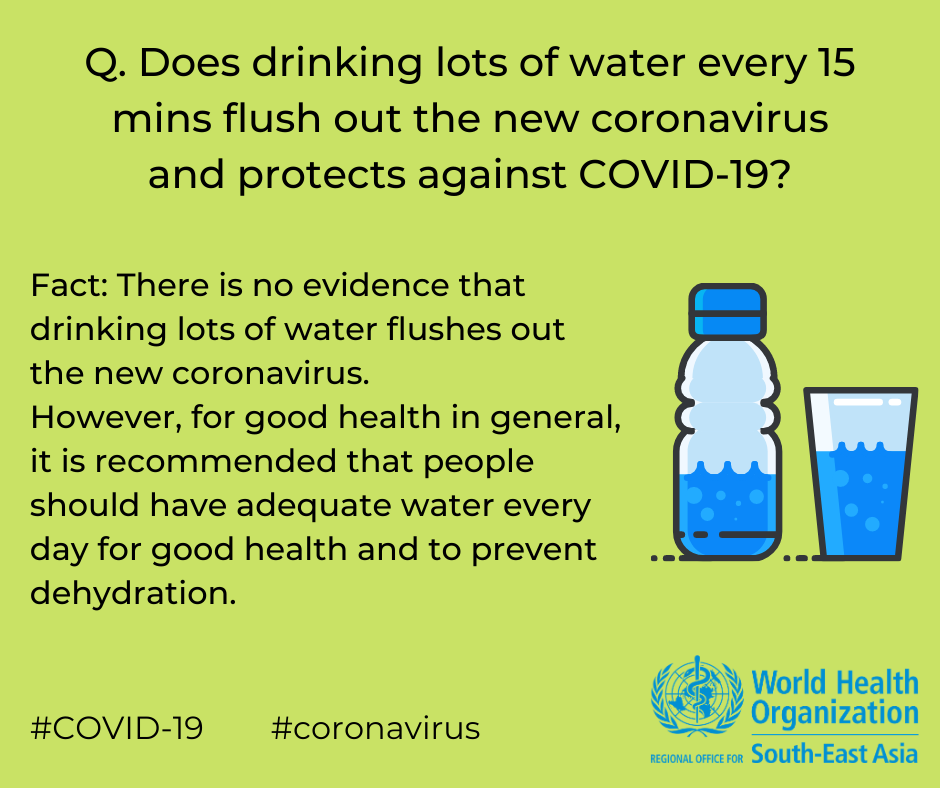
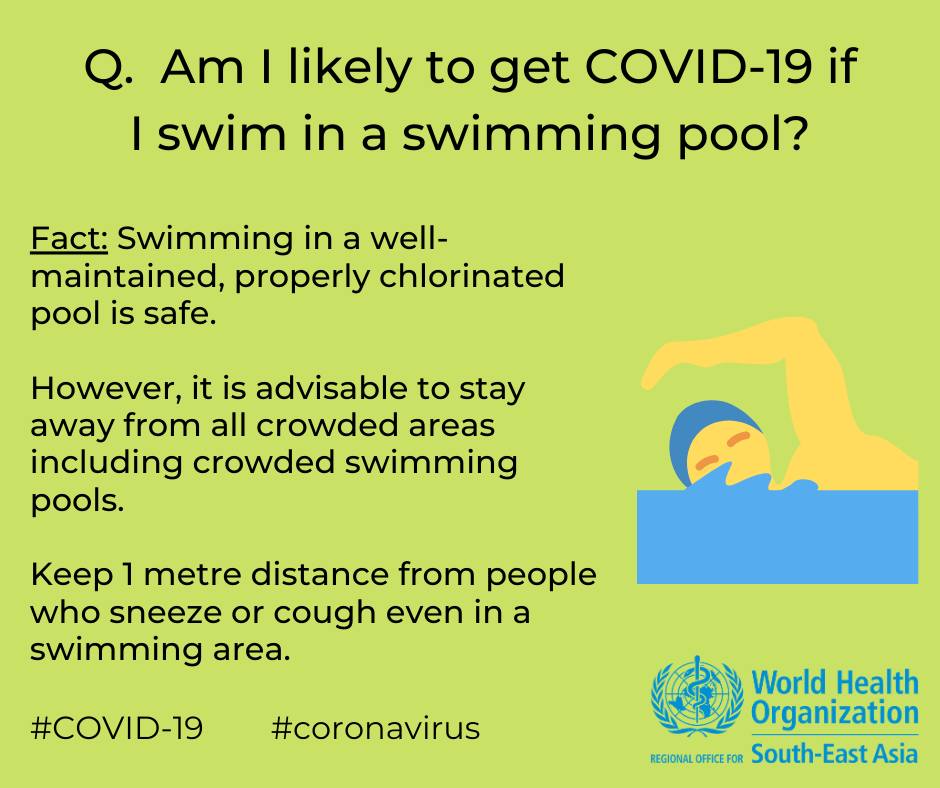
Fact: There is no evidence that sunlight kills the new coronavirus.
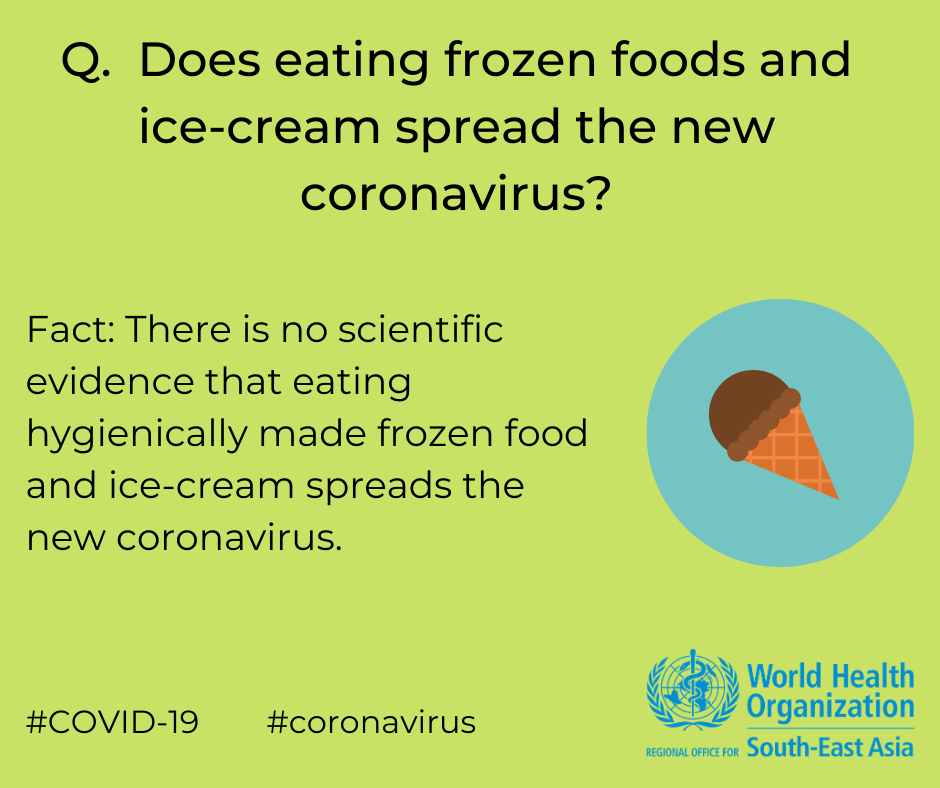
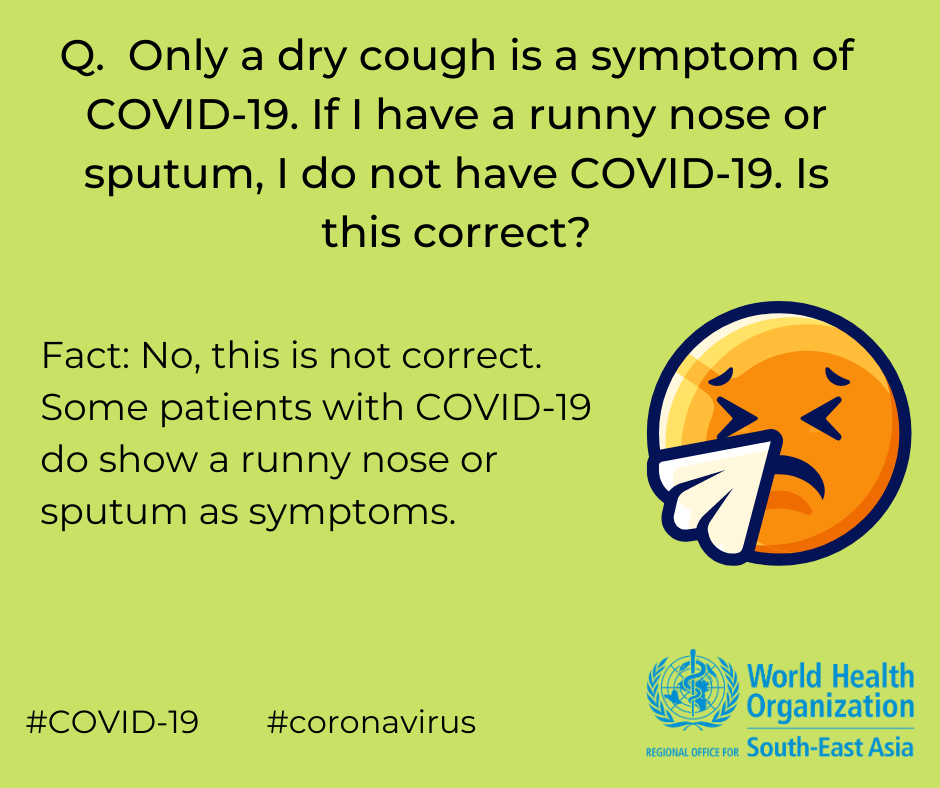
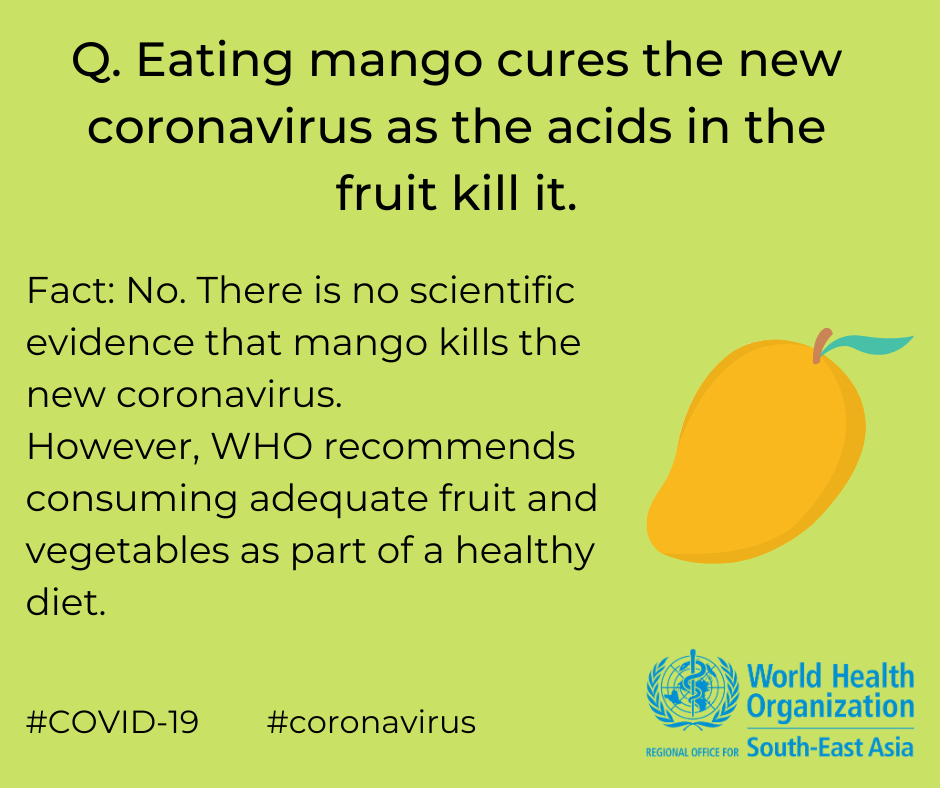
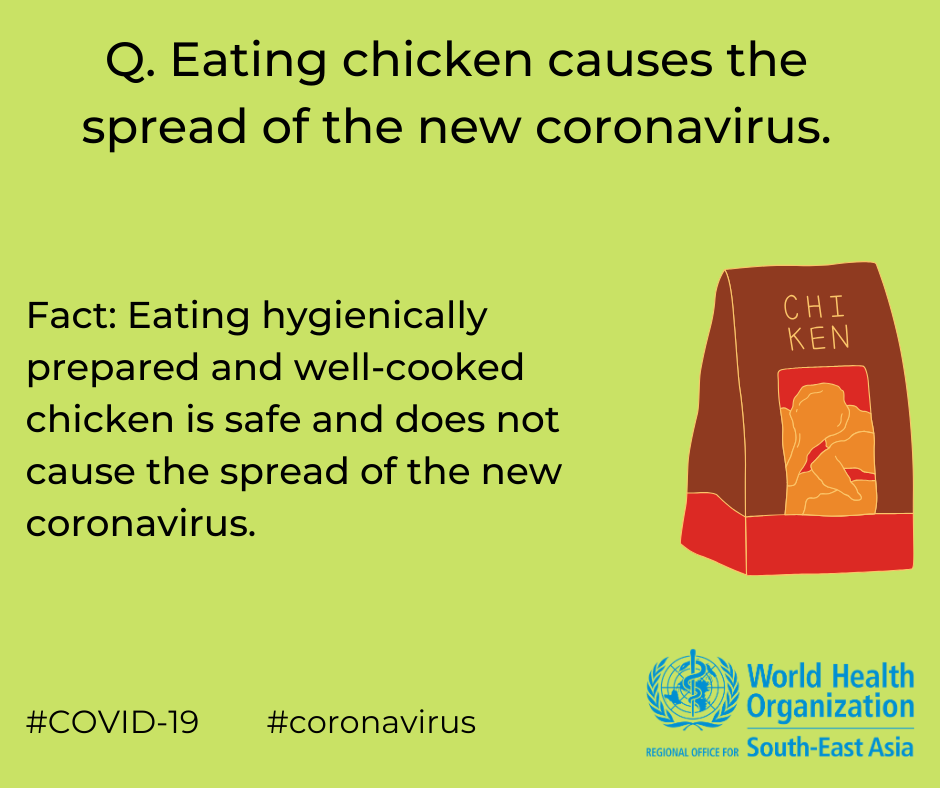
Fact: Eating hygienically prepared and well-cooked chicken is safe and does not cause the spread of the new coronavirus.
